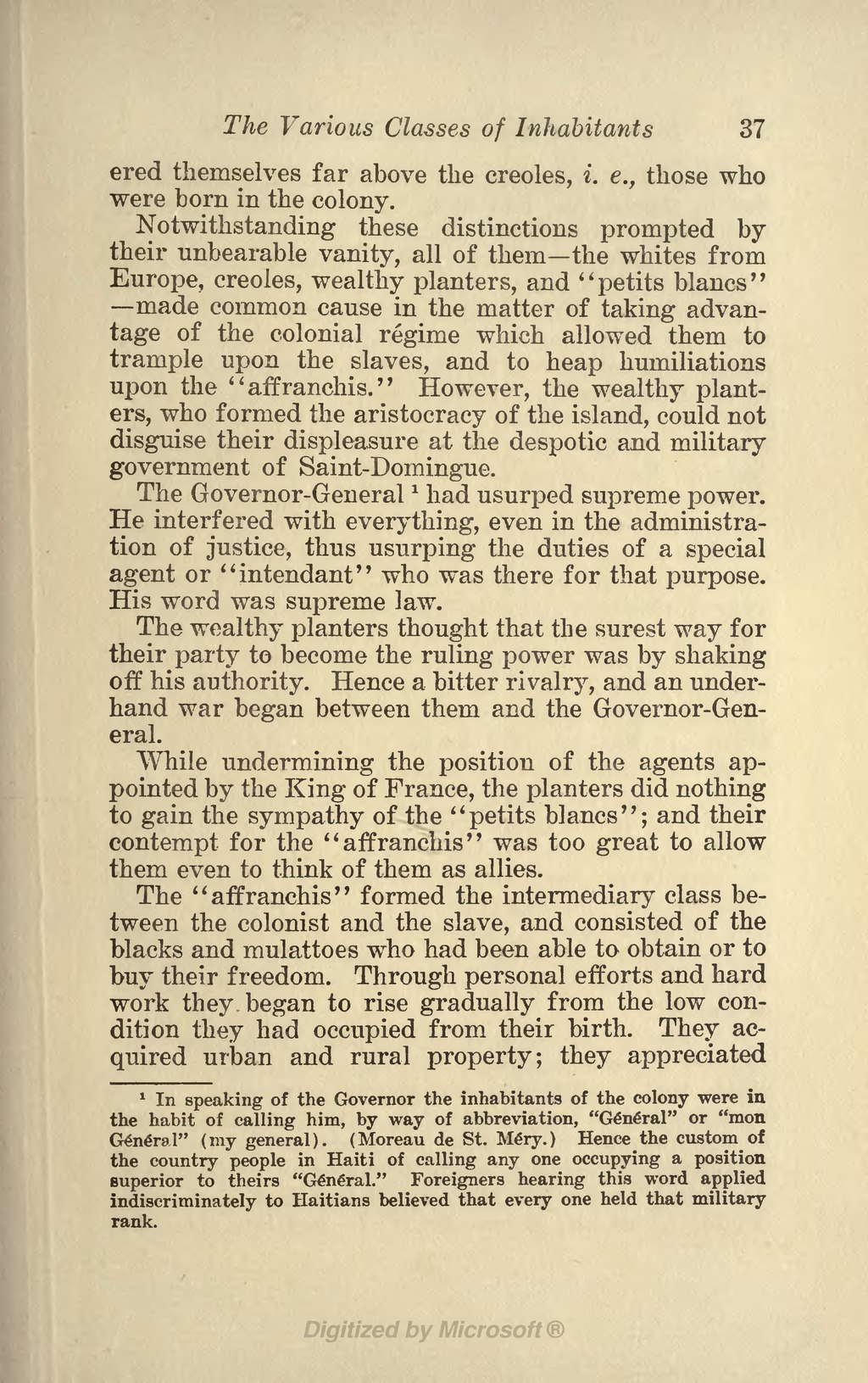ered themselves far above the Creoles, i. e., those who were born in the colony.
Notwithstanding these distinctions prompted by their unbearable vanity, all of them—the whites from Europe, Creoles, wealthy planters, and "petits blancs"—made common cause in the matter of taking advantage of the colonial régime which allowed them to trample upon the slaves, and to heap humiliations upon the "affranchis." However, the wealthy planters, who formed the aristocracy of the island, could not disguise their displeasure at the despotic and military government of Saint-Domingue.
The Governor-General[1] had usurped supreme power. He interfered with everything, even in the administration of justice, thus usurping the duties of a special agent or "intendant" who was there for that purpose. His word was supreme law.
The wealthy planters thought that the surest way for their party to become the ruling power was by shaking off his authority. Hence a bitter rivalry, and an underhand war began between them and the Governor-General.
While undermining the position of the agents appointed by the King of France, the planters did nothing to gain the sympathy of the "petits blancs"; and their contempt for the "affranchis" was too great to allow them even to think of them as allies.
The "affranchis" formed the intermediary class between the colonist and the slave, and consisted of the blacks and mulattoes who had been able to obtain or to buy their freedom. Through personal efforts and hard work they began to rise gradually from the low condition they had occupied from their birth. They acquired urban and rural property; they appreciated
- ↑ In speaking of the Governor the inhabitants of the colony were in the habit of calling him, by way of abbreviation, "Général" or "mon Général" (my general). (Moreau de St. Méry.) Hence the custom of the country people in Haiti of calling any one occupying a position superior to theirs "Général." Foreigners hearing this word applied indiscriminately to Haitians believed that every one held that military rank.
